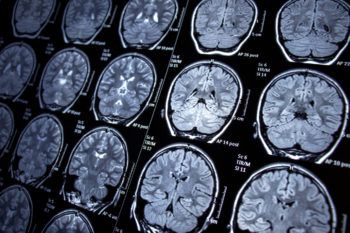Artificial Intelligence May Find Signs Of Alzheimer’s In Neuroimaging Data

Shuiwang Ji, associate professor in the Department of Computer Science and Engineering at Texas A&M University, is one of the principal investigators on a $6 million grant from the National Institutes of Health to develop artificial intelligence-driven methods to automate the process of finding subtle telltale signs of Alzheimer’s disease in neuroimaging data. Ji’s team shares $1.2 million of the grant.
Ji will lead the research team tasked with developing advanced deep-learning methods for finding relevant neural signatures lurking within neuroimages taken using different techniques, such as PET scans and MRIs.
“I feel very excited with this collaborative opportunity to make scientific discoveries in medical domains using deep learning and artificial intelligence,” said Ji, who has extensive expertise in machine learning, deep learning and medical image analysis.
Alzheimer’s disease affects 5.6 million Americans over the age of 65, and its symptoms are most noticeably the progressive impairment of cognitive and memory functions. It is also currently the most common form of dementia in the elderly. Despite copious amounts of studies on Alzheimer’s over the years, researchers’ understanding of the biology and progression of the disease remains limited, so there are limited advances in therapeutics and preventive strategies.
Ji said the research team expects to discover new genetic biomarkers relevant to Alzheimer’s, which may lead to understanding the molecular basis of the disease, and in turn, uncover a potential new treatment.
Researchers will leverage existing neuroimaging and genetic data resources from the UK Biobank, the Alzheimer’s Disease Sequencing Project, the Alzheimer’s Disease Neuroimaging Initiative, and the Cohorts for Heart and Aging Research in Genomic Epidemiology consortium.
Other collaborators on this research are Degui Zhi, associate professor with the UTHealth School of Biomedical Informatics, and Myriam Fornage, professor at the Center for Human Genetics at UTHealth.
This article by Amy Halbert originally appeared on the College of Engineering website.





